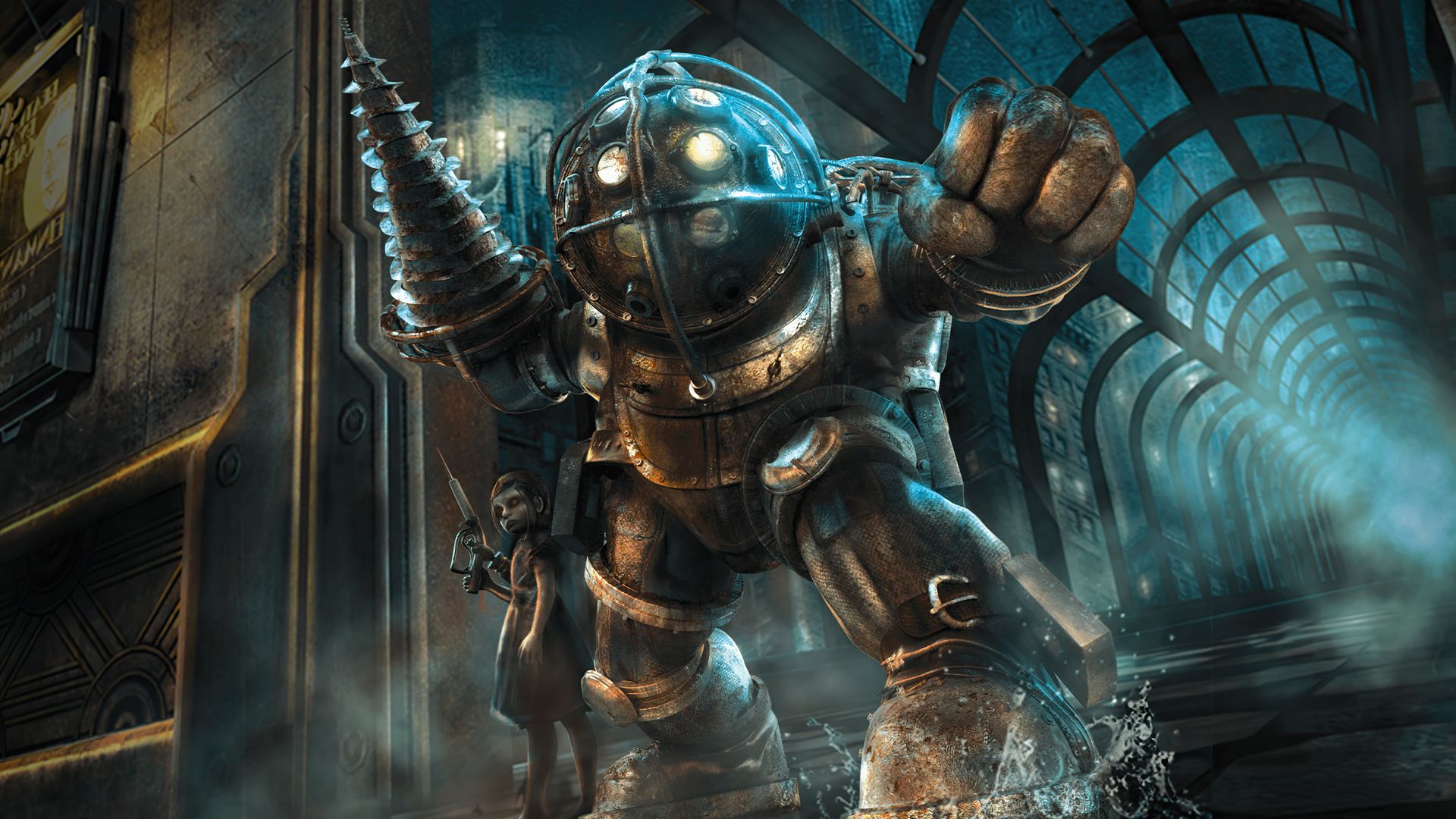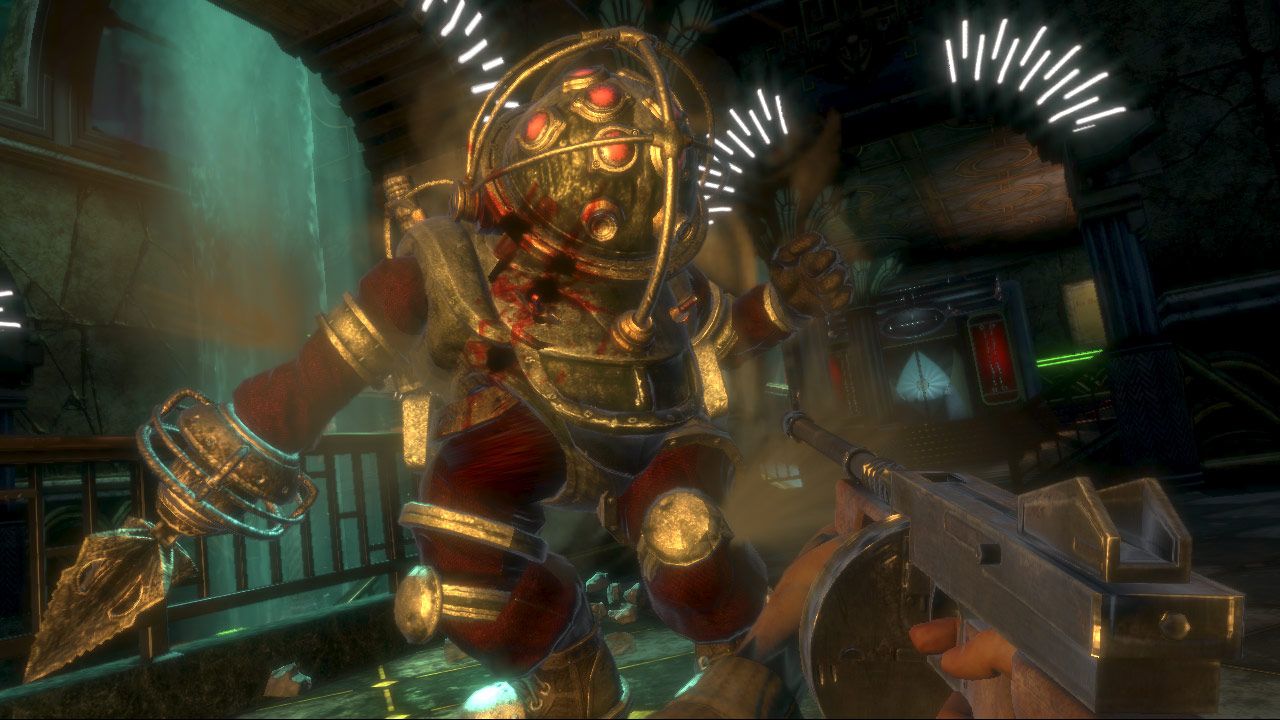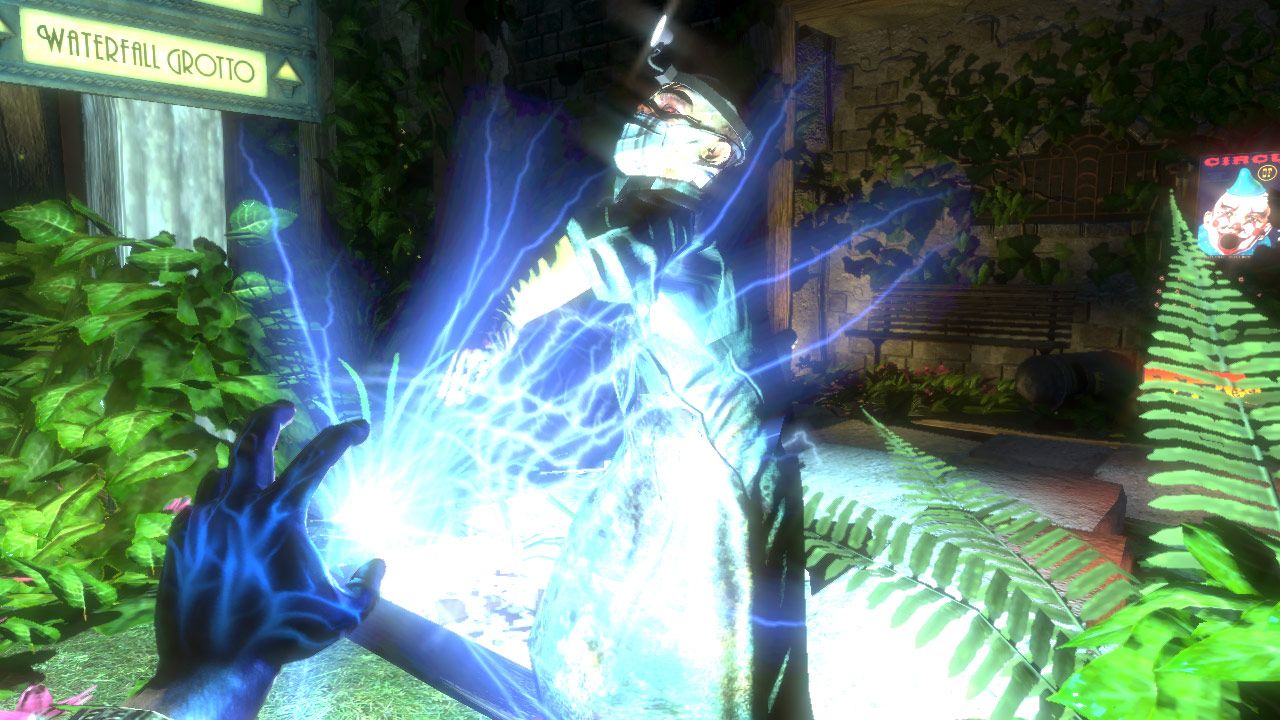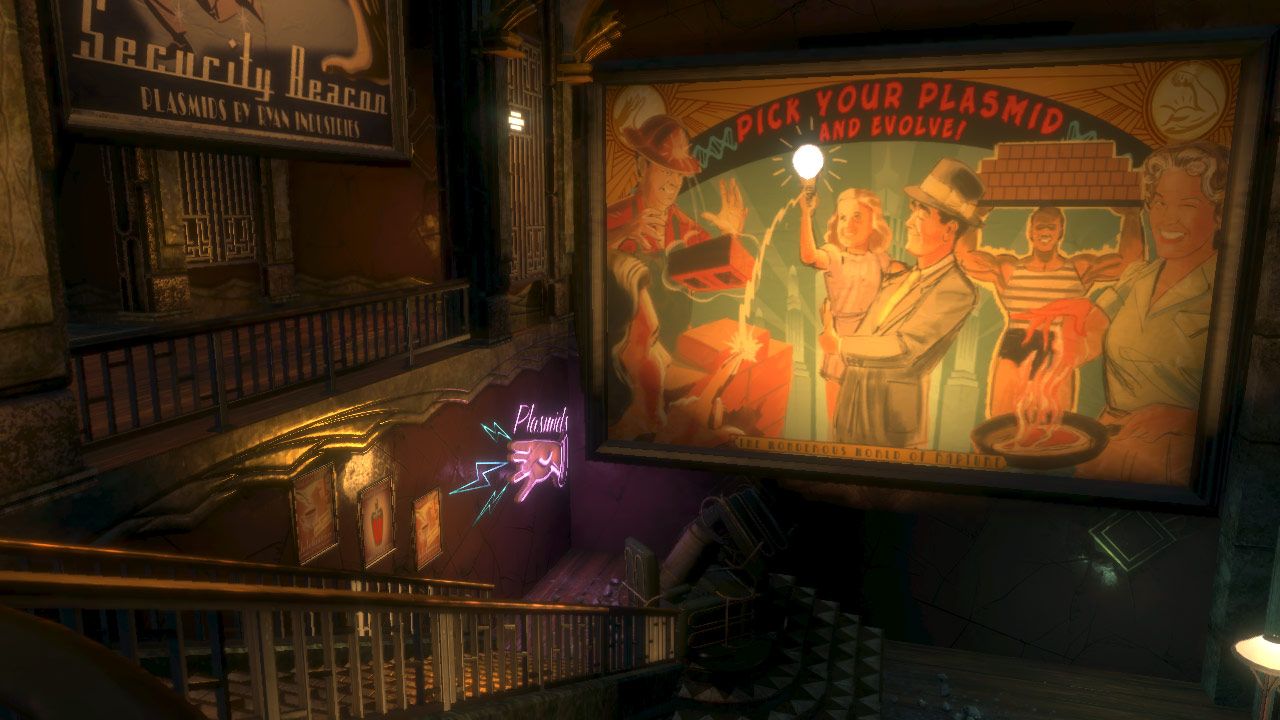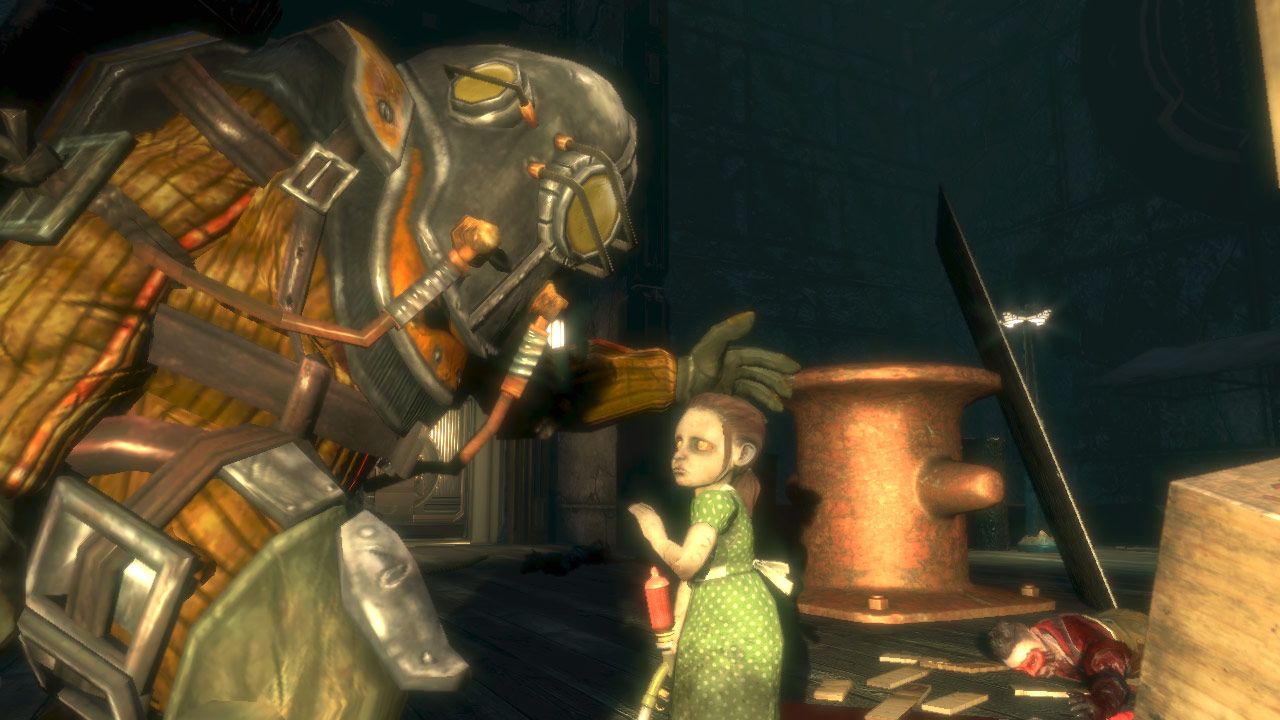People weren’t happy when I wrote about the narrative mediocrity of BioShock Infinite a few months ago, so much so that I’m still getting a bunch of lovely messages about it. You guys are the best, but please stop telling me to kill myself it’s a real downer.
To balance out my karmic playing field I thought I’d write about BioShock again, but this time I’ll be heaping praise upon an opening sequence that remains one of the genre’s very best. See, it is possible to criticise a thing and still enjoy it. Irrational Games struck gold with the original dystopian shooter, combining immersive sim elements with the tenets of blockbuster epics to create an experience that was packed with equal amounts of gravitas and nuance. It remains a masterpiece.
It’s almost hard to believe that when it launched in 2007 it managed to penetrate the mainstream so effectively. We might poke fun at its rather flimsy exploration of free will and Objectivist philosophy today, but back then it was breaking new ground and exploring narrative ideas that the medium hadn’t really broached upon before. This was before the release of Call of Duty 4: Modern Warfare or Halo 3, so it really was a different time.
Although I imagine the masses were also attracted by its gorgeous graphics and bloody violence, the art-deco beauty of Rapture’s failing utopia proved a treat to explore regardless of whether you cared for the yarn being unfolded. The audio logs, environmental storytelling, and atmosphere were things we’d never seen before at such a scale, and its impact was unmistakable. Yet none of these memories would have been made possible without the game’s opening, which far outweighs even the beloved ‘Would You Kindly?’ revelation or the untimely murder of Andrew Ryan at the hands of his own twisted biological creation.
The first few minutes of BioShock are etched into my brain, and have been for over a decade. You play as Jack, a blank slate of a protagonist who suddenly decides to hijack a plane and crash it directly into the Pacific Ocean. Everyone on board is killed, the once quiet sea now a bleak orchestra of smouldering debris, wayward belongings, and floating corpses. Somehow you survive, breaching the water’s surface and swimming towards a lighthouse looming in the distance. It’s the only sign of safety for miles, but will inevitably lead us into the depths of a fate far less palatable. There is no turning back.
A Bathysphere details the rise of this legendary city, pitching it as utopia for those who see above the dated political concepts of modern society and strive for something better. It’s a compelling pitch, drawing us in further as the slideshow fades away to reveal a city still drenched in majesty despite the bloodshed and corruption hiding within. We aren’t meant to be here, but there’s something about Rapture that draws us in, making us want to keep digging for what exactly brought this civilization to its knees. I’m curious if repeat visitors have to watch that pretentious presentation each and every time they pop to the shops or return to Rapture after some time away or if they can just opt out or something.
Once the Bathysphere comes to a close we’re immediately set upon by Splicers, corrupt beings whose very existence now hinges on getting their fix and killing all those who dare cross their path. They are beyond saving, with only a few sane individuals scattered across the city still choosing to call this place home. Atlas is one of them, a man with a hidden motivation who immediately offers to help us in order to survive. He’s an invisible voice and a companion in the darkness, his charming accent providing us with a small blanket of security as we walk forward. Soon we find a wrench, then a plasmid, and are fed expertly placed exposition that builds out this world into something magnificent.
This opening level is so perfectly paced. It’s interspersed with intense firefights and sudden explosions, but there’s also welcome bouts of silence for us to bask in. We’re able to explore this broken place, picking up audio logs and glancing at scenery that used to represent greatness. Yet the faulty ideology at the centre of this bloated vision was inevitably its downfall, with too many overzealous egos in one place to ever allow for a single form of leadership. The characters of BioShock are still some of the medium’s greatest, even if Infinite would take the foundations explored here and venture much too far into pretension.
The original BioShock never overplayed its hand, always keeping us at arm’s length with the illusion of freedom combined with thrilling set pieces that show us what we’re meant to see and what we’re meant to hear. Repeat playthroughs only shine a more definitive light on this world as you uncover new audio logs and character motivations, picking apart the layers until all that remains is misery. I’d say the opening doesn’t truly culminate until your first Big Daddy is defeated, with the moral conundrum at the game’s centre becoming perfectly clear. You can spare the Little Sisters or grant them an underserved death. It’s a fairly rote twist on morality, but it was also the first of its kind in a lot of ways, and for that it still works wonderfully.
The series is often used as a punching bag nowadays, and with BioShock Infinite that reputation is sometimes deserved, but the original game’s introduction is perfect. The storytelling, pacing, characters, atmosphere, combat, visuals, and so more combine to create an immersive first step into a world that takes hold and ceases to let go. It will forever remain etched into my memory, and I can’t imagine I’m alone in that.

